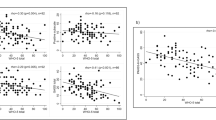Summary
138 psychoneurotic outpatients manifesting anxiety were treated for 6 weeks with medication and brief, supportive interviews every 2 weeks with a psychiatric resident. The patients were divided among 12 different treatment conditions composed of 1. meprobamate 1,600 mg q.i.d. versus an identical placebo in a double-blind arrangement, 2. a doctor expressing an enthusiastic attitude toward the medication versus a doctor expressing a skeptical attitude toward the medication and 3. three different psychiatric outpatient clinics.
The patient's symptomatic condition was assessed at each visit by means of five ratings made by the patient before each interview and three ratings made by his doctor afterward. These ratings included an overall judgment of change, a checklist of 64 common symptoms, a score based on the patient's presenting complaints and adjective checklists for registering anxiety and depression.
The results at one clinic showed the expected interaction between medication and doctor's expressed attitude: with the enthusiastic doctors, patients taking meprobamate improved more than patients taking placebo; whereas with the skeptical doctors, patients taking placebo tended to improve more than patients taking meprobamate. At the other two clinics, however, this interaction was absent or possibly reversed, with meprobamate tending to be superior to placebo with skeptical doctors.
Some striking clinic differences among the characteristics of patients were found, particularly in social class status and the commonly associated styles of complaint and goals and expectations regarding treatment. The clinic showing the anticipated interaction between medication and doctor's verbal attitude had patients with the lowest social class standing. The doctors at this clinic also came from backgrounds of lower social class than the doctors at the other two clinics. These differences suggest that the participants at this clinic may have assigned meanings to the enthusiastic and the skeptical attitudes contrasting with the meanings assigned at the other two clinics. The possible relevenace of these differences to the results is discussed.
Similar content being viewed by others
References
Adorno, T. W., E. Frenkel-Brunswick, D. J. Levinson, and R. N. Sanford: The Authoritarian Personality. New York: Harper 1950.
Allport, G. W.: A test for ascendence-submission. J. abnorm. soc. Psychol. 23, 118–136 (1928).
Clyde, D. S.: Self-ratings. In Uhr, L., and Miller, J. G. (Eds.): Drugs and Behavior. New York: Wiley 1960.
Cole, J. O.: Personal communication (1964).
Feldman, P. E.: The personal element in psychiatric research. Amer. J. Psychiat. 113, 52–54 (1956).
Fisher, S., J. O. Cole, K. Rickels, and E. H. Uhlenhuth: Drug-set interaction: the effect of expectations on drug response in outpatients. In Bradley, P. B., F. Flügel, and P. Hoch (Eds.): Neuropsychopharmacology, vol. 3, pp. 149–156. Amsterdam: Elsevier 1964.
—, R. S. Lipman, E. H. Uhlenhuth, K. Rickels, and L. C. Park: Drug effects and initial severity of symptomatology. Psychopharmacologia (Berl.) 7, 57–60 (1965).
Frank, J. D., L. H. Gliedman, S. D. Imber, E. H. Nash jr., and A. R. Stone: Why patients leave psychotherapy. Amer. Med. Ass. Arch. Neurol. and Psychiat. 77, 283–299 (1957).
Hollingshead, A. B., and F. C. Redlich: Social Class and Mental Illness. NewYork: Wiley 1958.
Kast, E. C., and J. Loesch: A contribution to the methodology of clinical appraisal of drug action. Psychosom. Med. 21, 228–234 (1959).
Lipman, R. S., J. O. Cole, L. C. Park, and K. Rickels: Sensitivity of symptom and nonsymptom-focused criteria of outpatient drug efficacy. Amer. J. Psychiat. 122, 24–27 (1965).
—, K. Rickels, E. H. Uhlenhuth, L. C. Park, and S. Fisher: Neurotics who fail to take their drugs. Brit, J. Psychiat. 111, 1043–1049 (1965).
McNair, D. M., D. M. Callahan, and M. Lorr: Therapist “type” and patient response to psychotherapy. J. consult. Psychol. 26, 425–429 (1962).
—, and M. Lorr: An analysis of mood in neurotics. J. abnorm. soc. Psychol. 69, 620–627 (1964).
National Institute of Mental Health Psychopharmacology Service Center Collaborative Study Group: Phenothiazine treatment in acute schizophrenia. Arch. gen. Psychiat. 10, 246–261 (1964).
Park, L. C., E. H. Uhlenhuth, R. S. Lipman, K. Rickels, and S. Fisher: A comparison of doctor and patient improvement ratings in a drug (meprobamate) trial. Brit. J. Psychiat. 111, 535–540 (1965).
Parloff, M. B., H. C. Kelman, and J. D. Frank: Comfort, effectiveness and self-awareness as criteria of improvement in psychotherapy. Amer. J. Psychiat. 111, 343–351 (1954).
Rickels, K., S. Fisher, E. H. Uhlenhuth, R. S. Lipman, L. C. Park, and L. Snow: Side reactions on meprobamate and placebo. (In preparation a).
- R. S. Lipman, S. Fisher, L. C. Park, and E. H. Uhlenhuth: Is a double-blind study really double-blind ? A report of doctors' medication guesses. (In preparation b).
Uhlenhuth, E. H., A. Canter, J. O. Neustadt, and H. E. Payson: The symptomatic relief of anxiety with meprobamate, phenobarbital and placebo. Amer. J. Psychiat. 115, 905–910 (1959).
—, L. C. Park, R. S. Lipman, K. Rickels, S. Fisher, and J. Mock: Dosage deviation and drug effects in drug trials. J. nerv. ment. Dis. 141, 95–99 (1965).
Whitehorn, J.C., and B.J. Betz: Futher studies of the doctor as a crucial variable in the outcome of treatment with schizophrenic patients. Amer. J. Psychiat. 117, 215–223 (1960).
Author information
Authors and Affiliations
Additional information
This work was supported by grants MH-04731, MH-04732, MH-06350 and K3-MH-18,611, all from the NIH. The computations were done by the Biometric Laboratory of the George Washington University and at the Computing Center of the Johns Hopkins Medical Institutions, which is supported by research grant FR-00004 from the NIH.
We wish to express our appreciation to all who participated in this collaborative study. Their names are listed in the Appendix.
Rights and permissions
About this article
Cite this article
Uhlenhuth, E.H., Rickels, K., Fisher, S. et al. Drug, doctor's verbal attitude and clinic setting in the symptomatic response to pharmacotherapy. Psychopharmacologia 9, 392–418 (1966). https://doi.org/10.1007/BF00406450
Received:
Issue Date:
DOI: https://doi.org/10.1007/BF00406450




